10 lessons I learned from traveling the world for 44 years
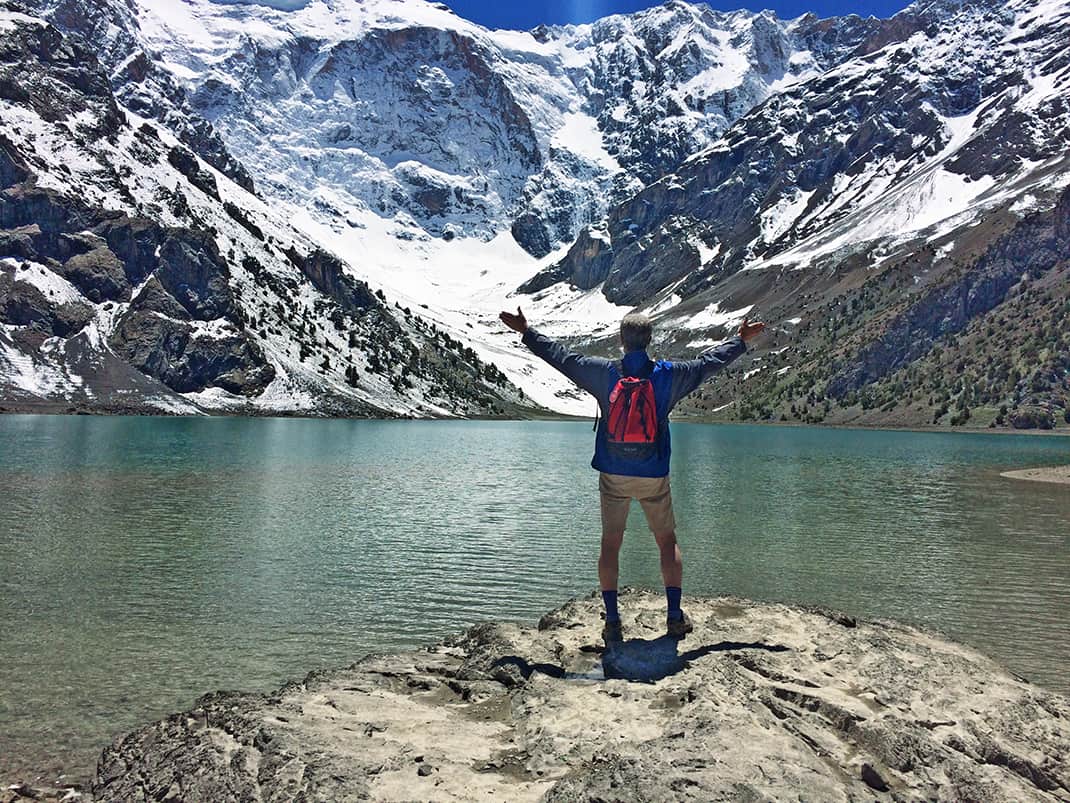
The white fedoras have returned.
They are the calling card of the Rome tourist. They’re like bull’s eyes on deer. Two-legged herds walk around Centro Storico with identical white, wide-brimmed hats with a black band around the crown. I swear they hand them out at Fiumicino Airport upon clearing Immigration.
Today they are all over Rome, the true sign that tourist season has arrived. In fact, tourist season is back all over the world. Despite about half a million people a day still contracting Covid, nations have opened their borders and travelers shut in for two years are pouring through.
Italy is expecting 92 million visitors this year, up from 16 million in the Covid-ravaged 2020, bringing in revenue of 26.4 billion euros ($27.7 billion). About 67 million tourists canceled plans to visit Italy two years ago. Now they’re returning.
Travel is the greatest discovery of my life and people appreciate it even more after it’s taken away. Covid and lockdowns and ever-changing testing rules have made me reflect on what traveling has meant to me during my 44 years on the road.
Like an awakening or a transformational message from another world, it changed my life forever. I went from an insecure, lonely – dare I say, boring – workaholic to an adventurous, laid-back loner. OK, I overcorrected the lonely part. Still, traveling is what I am more than any newspaper job I ever had.
Travel has taught me valuable lessons I’ve carried with me forever. Here are the 10 lessons I learned from traveling. Clip it and see if you agree from your travels:
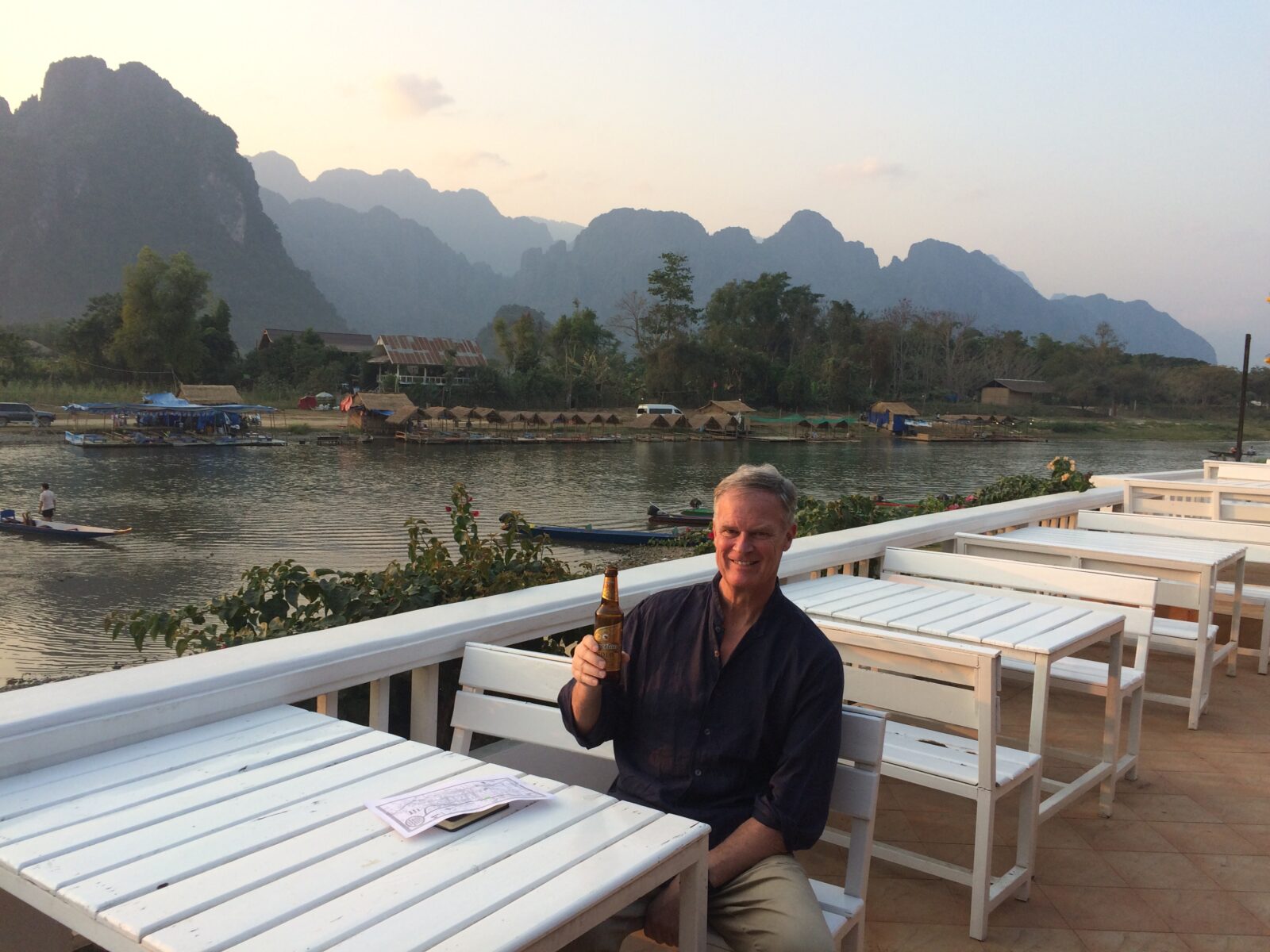
Going solo
It’s easy to stand with a crowd. It takes courage to stand alone. In college, I joined a fraternity because I had no courage. Living with 50 guys in one house was more appealing than living in a one-bedroom apartment. I ignored the odors. I couldn’t go to a 7-Eleven alone, let alone another country.
But my senior year a fraternity brother, as shy and withdrawn as I, returned from six months in Europe. A high school classmate returned from a year and a half in Asia. They were changed men. Confident. Outgoing. Worldly. They had all the characteristics I wanted.
Shortly thereafter, I bought a ticket to London and didn’t come home for a year. I traveled around the world by myself. The first step I took – the one onto the plane – is the hardest one I ever had to make. After that I’ve been walking downhill.
I discovered something shocking: I really do like my own company. I’m alone with my thoughts, with my writing. I meet people easier. I find tremendous satisfaction in crossing complicated borders by myself. Drinking alone isn’t lonely. It’s peaceful. Now after 109 countries, I have a new life philosophy.
When you travel alone, it’s never crowded.
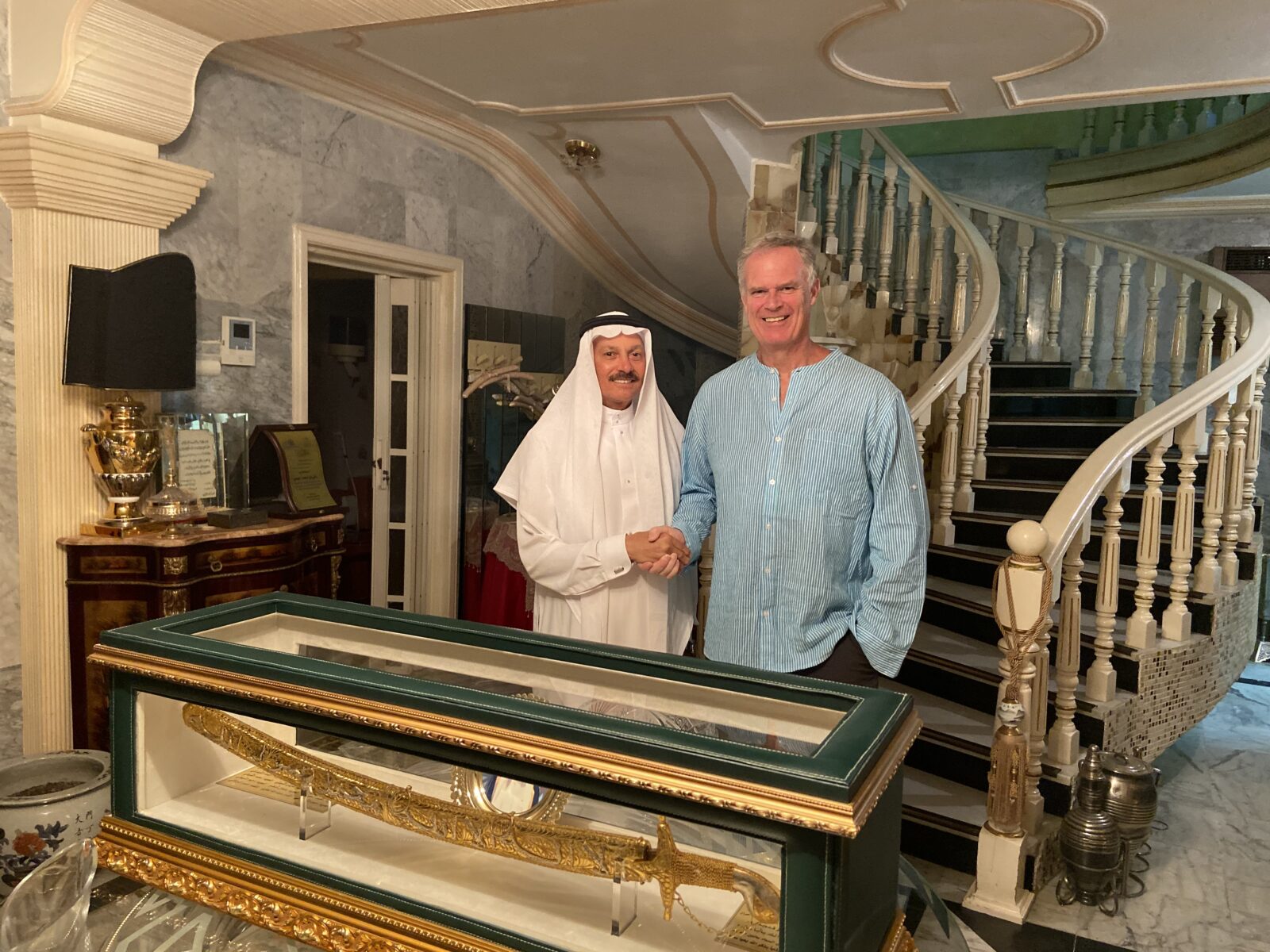
Accepting others
Americans don’t have the blueprint on how to live. Who are we to say how others should? I remember meeting a Hindu woman on a beach in Malaysia. She was telling me about the guy she was about to marry. They’d meet on their wedding day.
I thought that was odd. Then I told her about the 50-percent divorce rate in the United States. She thought that was odd. We accepted it as different customs for different values.
I’ve had deep discussions about religion with Muslims, Hindus, Buddhists and Jews. I’m an atheist. None of them told me I was going to Hell. Only right-wing born-again Christians have. Why am I an atheist? Here’s why: To accept one god is to say all the other gods don’t exist and I’m not telling a billion Hindus they’re wrong.
So remember this when you traverse the globe and meet people: Just because someone is different, doesn’t mean they’re better or worse. They’re just different.
As Mark Twain wrote in “Innocents Abroad,” “Travel is fatal to prejudice, bigotry and narrow mindedness, and many of our people need it solely on these accounts.”
He wrote that in 1869.
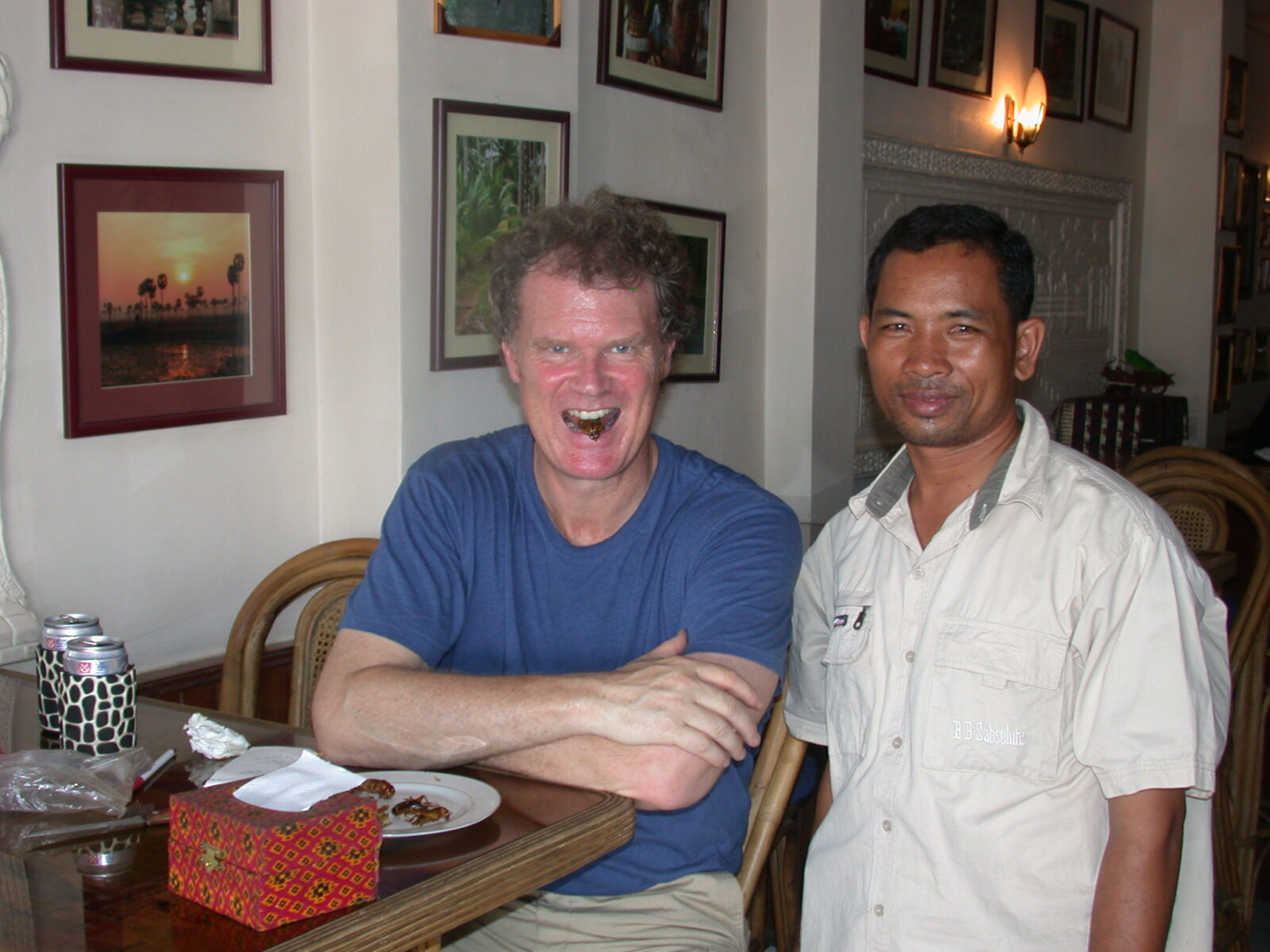
Try different foods
Before travel, I was the world’s pickiest eater. I loathed vegetables. I blamed my mom who was the worst vegetable cook in the history of the human race. Everything came out of a can. Our cupboards were filled with canned spinach, canned tomatoes, canned brussels sprouts. I thought she was planning for nuclear fallout.
She served eggplant with maple syrup; cauliflower with mayonnaise. I was scarred for life.
But then I started backpacking on a budget. When you live on $15 a day you try anything cheap. You’ll eat anything free. I tried yogurt for the first time in Sweden when I tagged along on a local’s milk route. I ate snails in Paris. I fell in love with vegetables – FRESH vegetables – when I had them stir fried in the streets of Southeast Asia.
Now I’ll try anything once – and I have. Snake’s blood in Taiwan. Water buffalo brains in Egypt. Live beetle larvae in Brazil. Ram testicles in Nepal.
However, I may not try them twice.

Respect through language
I grind my teeth and clench my fist when I hear American tourists in Rome say, “Thank you.” How hard is it to learn “Grazie”? How hard is to learn “Thank you” in any language?
In every country I visit, I learn a few basic phrases, things I learn on the inbound plane or train. It’s “Thank you,” “Where is …?” “How much?” “I would like …” and, when in Sweden, “I want to father your child.” With those phrases, you can get by anywhere, of course, some places better than others.
The best way to respect a culture is through language. Yes, English is the international language. It’s used by air traffic controllers and in international conferences. It’s considered the language needed to get ahead.
But it also carries an arrogance I never wanted to show. We’re in their country. We should speak their language. At least try. All locals appreciate the effort. They’ll spend time helping you just because you do try. Even in Scandinavia where seemingly everyone is English fluent, I try to speak the local language.
(Disclaimer: Don’t try it in Iceland. Icelandic is impossible. I tried. My mind nearly snapped.)

How to budget
When I traveled around the world for a year, I spent only $4,500. That includes airfare. It also includes the return ticket to London I cashed. Of course, that was 1978-79. Laker Airways had poleaxed the airline industry with its $99 flights to Europe and budget travel exploded.
During that year I learned how to stretch the dollar – or franc or baht or Egyptian pound. I had a strict budget: $15 a day for Europe, $10 a day for North Africa, $12 a day for Asia. If I went over it one day (I jumped it to $20 for Paris), I made up for it somewhere else. (I lived on about $7 a day in Egypt.)
I traveled on the economic philosophy of if I don’t need it I don’t buy it. I have taken the same philosophy into retirement. I don’t need a car in Rome. So I’m not buying one.
Granted, my travel budget has expanded. If I’m thirsty, I’ll stop for a beer. I no longer eat in restaurants where ants carry rice off my plate in single file.
But I also don’t judge a restaurant by how many Michelin stars it has or stay at a hotel based on its points program. Speaking of which …

The more you spend on accommodation, the farther you get from the local culture
Crisscrossing America as a sportswriter, I was an absolute Marriott whore. I stayed for its points program. After a year or two of Marriott nights, I had enough points for a free week in any Marriott in the world, including airfare. I took free trips to Paris, Bali, St. Kitts, even Borneo.
However, if you stay in Marriotts everywhere you can travel around the world and never leave America. They’re the same from Barstow to Bangkok.
When I travel, I try to stay in local, family run accommodations. You get to know the owner, the local workers. You eat local food. You pay cheaper prices. AirBnB has been the greatest travel innovation since the backpack. I’ve stayed and gone out with families in Sri Lanka, Iceland, Sicily, Tajikistan, countless others. I’ve met hundreds of people I never would’ve met otherwise.
Of course, this is when I travel solo. My girlfriend is a very low-maintenance, seasoned world traveler. But she has one requirement. She must have a hotel breakfast buffet.
She loved our stay at the Marriott in Denia, Spain.

America is not the greatest country in the world
It may be for you. It may be for me. It may be for the bartender at the corner tavern. But it may not be for a banker in Switzerland, a shepherd in France or a Buddhist monk in Thailand.
My blood pressure rises when I hear Americans say, “America’s the greatest country in the world,” particularly Americans who’ve never had a passport. When they say that, they are shoving their value system down everyone else’s throat.
America isn’t for everyone. I know Italians who moved to America and its “pot of gold.” Yes, they made more money. However, they had no time to spend it. They moved back to Italy. They made less but celebrated life more.
Italy is my favorite country in the world. But it’s not for everyone, either. It’s a hard place to live. But for my value system – beauty, good food, laid-back lifestyle, art – it’s the place for me. It may not be the best for you.
And for all Americans who wrap themselves in the flag and wave their index finger in the air and their middle finger to the rest of the world, wrap yourself around these numbers: The U.S. is 26th in life expectancy, 30th in math efficiency, 11th in obesity, 11th in health care, fourth in heart disease and 20th in overall prosperity. The U.S. is, however, No. 1 in one area.
Military spending. It’s three times more than No. 2 China.
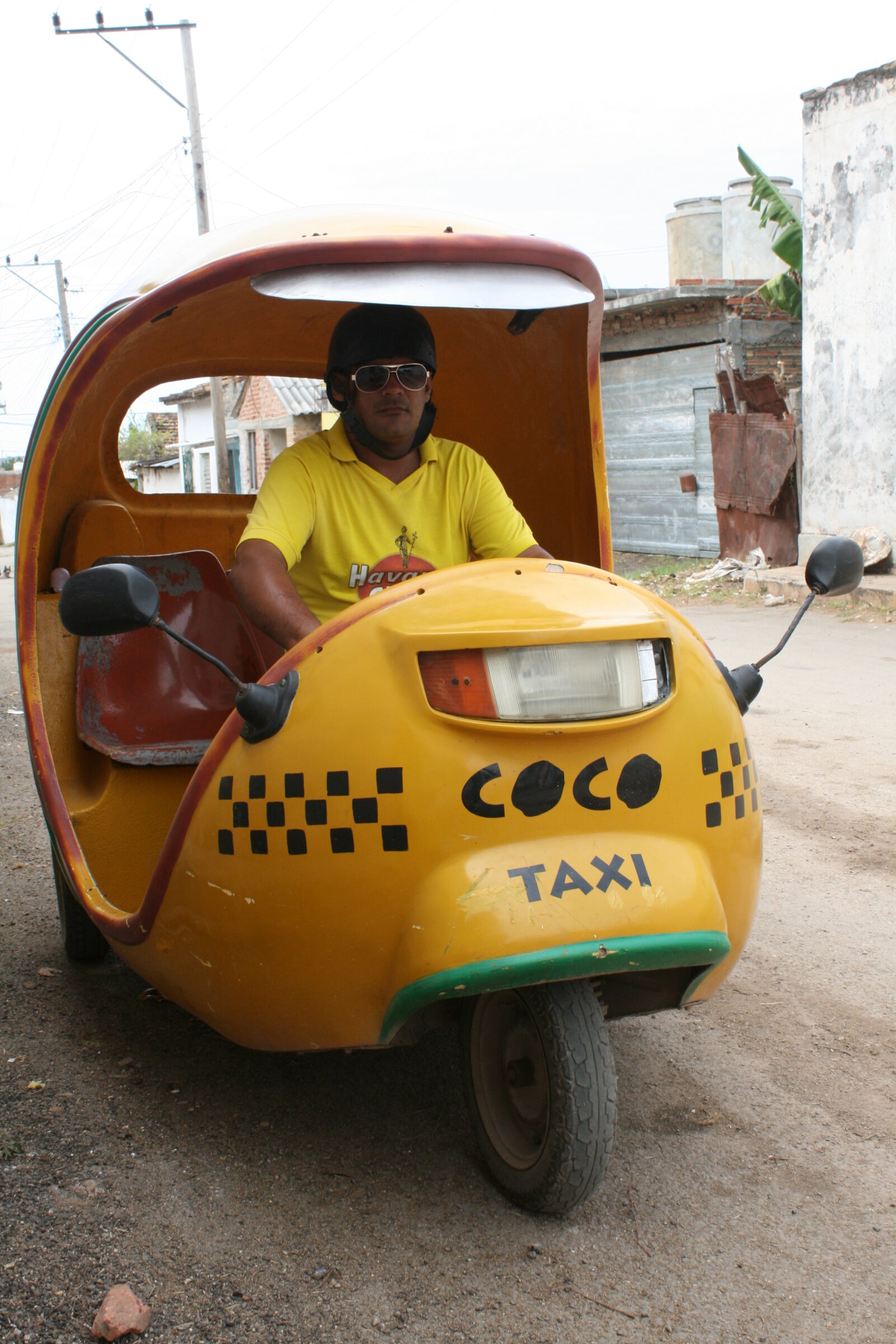
Rough it on public transportation
The mantra of seasoned travelers is, it’s not just the destination. It’s the journey. When you sit around with friends swapping travel tales, how often do you discuss the missed flight that forced you to take a local bus 12 hours or the rental car that broke down on a mountain pass?
Traveling on a budget at 22 taught me how to not complain about local transport at 66. I once took a bus through Haiti and when it broke down in a jungle, no one would get out to take a bathroom break for fear of zombies. When I came back unharmed they thought I was one of them.
While hitchhiking behind the Iron Curtain in Hungary, I got picked up by a truck driver who wouldn’t drop me off at the train station as I requested. Instead he drank straight out of a bottle of vodka, while I yelled unintelligible English at him, on his way to driving me all the way to Budapest, my destination. He even dropped me off at the office where I could get accommodation.
I went from Cairo to Faiyum, about four hours away, in a train so crowded people hung out of windows and sat on the roof. I sat in the back of a bush taxi, kind of like an Indonesian pickup, with natives and various wildlife for 12 hours through a jungle in Sulawesi.
I always arrived in one piece. I never complained. So I don’t complain now when RyanAir’s seats don’t recline.
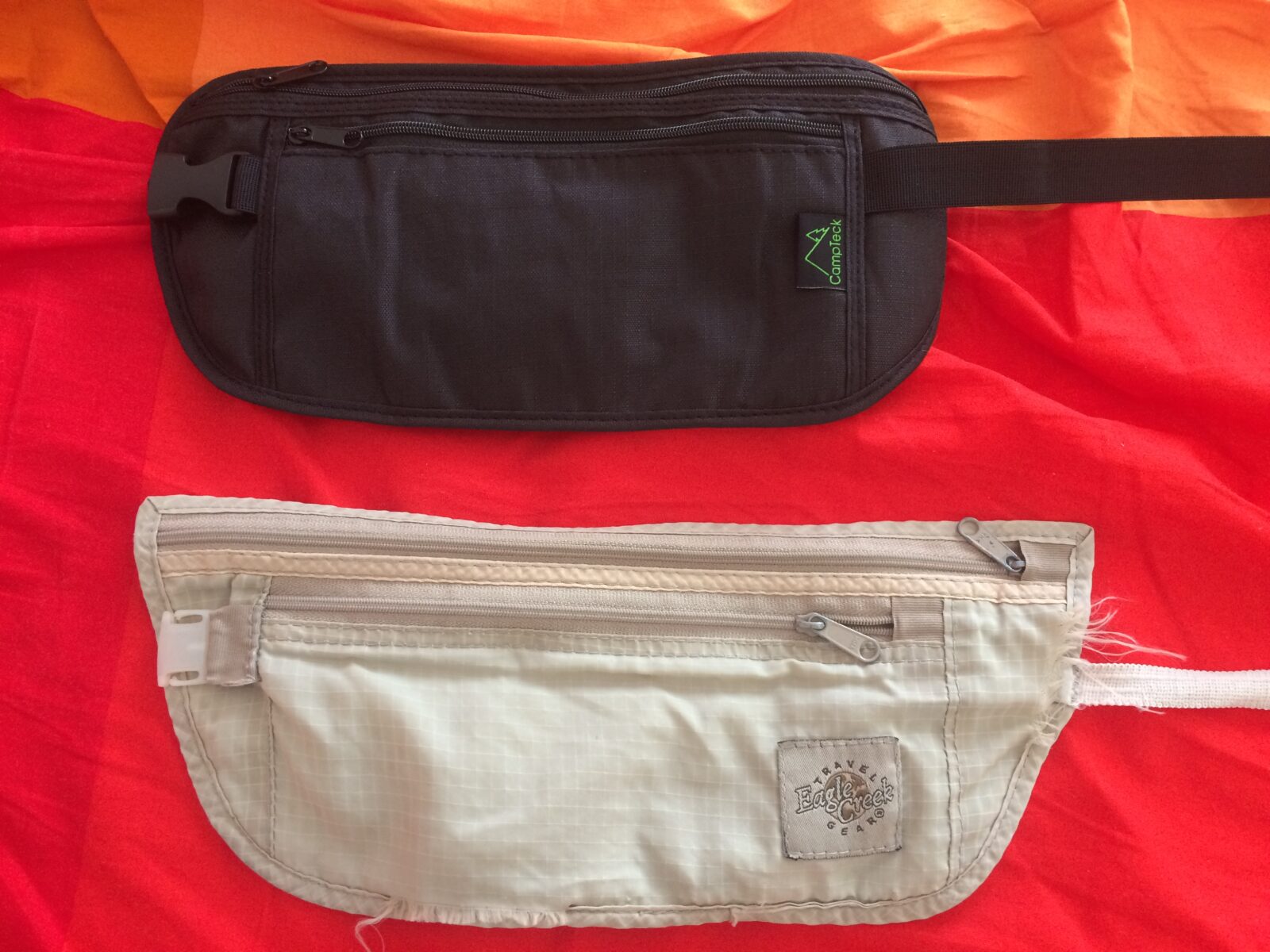
How to avoid scams
Your best protection while traveling are your street instincts. Fortunately, I have good ones. As an obvious foreigner, an obvious Westerner and to some, an obvious American, I’m aware I’m a target. Traveling in many third world countries, I’m the guy who can make their day.
I have a rule: When a local approaches you, he (or she) wants something; if you approach a local, you might make a good friend.
I’ve never been ripped off. Twice I foiled scams in Russia. Once in St. Petersburg I had my hands full of grocery bags and approached a subway escalator. The old man suddenly bent over to tie his shoe. I immediately knew he was stalling me so the men behind me could go through my pockets. I swung my bags around like baseball bats. They took another escalator, obviously not going my direction.
In Moscow, a man emerged from under a bridge to tell me he found a pile of rubles and held them out to me. He asked if I wanted to split them. I laughed and kept walking. A bigger man joined him out of nowhere and the first said, “Hey, this guy said it’s his money and you took some of it. He wants to see your wallet.”
I laughed and said, “Idi k chertu. (Fuck you).” As I said, it helps to speak a little of the local language.
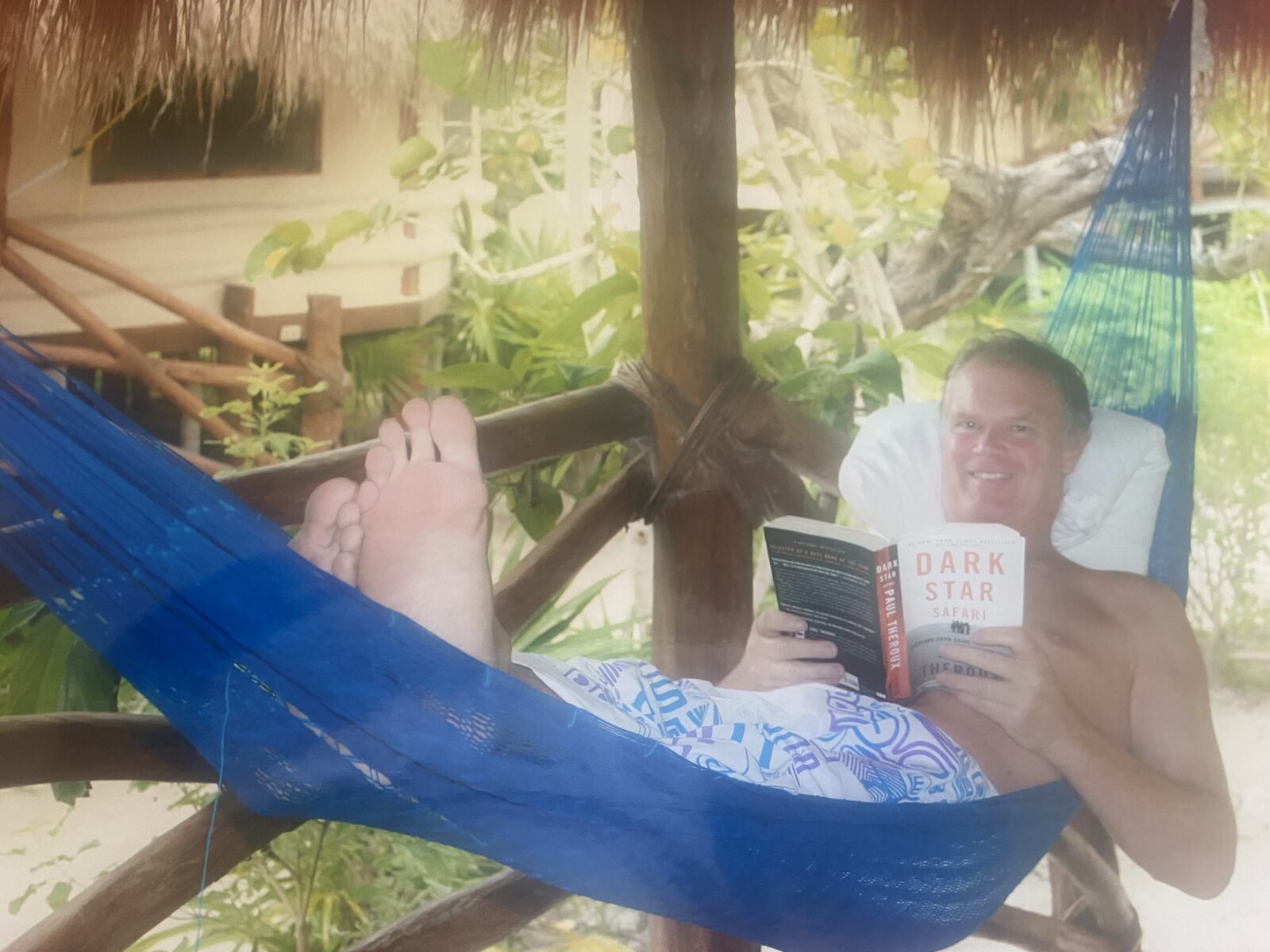
How to relax
Too many travel with a checklist. Go from Point A to Point B to Point C. One American told me if he doesn’t come home exhausted, he doesn’t feel like he traveled.
Cazzata! (Bullshit in Italian, another handy word.) When you try to see too much you wind up seeing nothing at all. Don’t just look. See. Sometimes the best way to see a culture is to sit and watch it go by.
One of the first things I do wherever I go is stake out a local cafe or bar. I stop by every day. By the end of my stay I’ve made friends with the bartender and a few locals. And every trip I take one day to do nothing.
I just sit and watch.
In Saudi Arabia I sat on a near empty beach in Jeddah all day. In Laos, I laid in my hammock next to the Mekong River and read. In Paris I’ll take a picnic lunch to Parc de Mars and eat good cheese, drink fine wine and stare at the Eiffel Tower.
Hope these lessons help. Write to me with any revelations traveling has given you.


May 17, 2022 @ 12:41 pm
Great article, really enjoyed your tips. Also very much enjoy your AS Roma commentary!
Curious as to why you say Italy is a hard place to live?
May 17, 2022 @ 4:00 pm
Such a captivating read, as always John. You discovered your calling as a writer was to not bother with stock sports quotes.
May 17, 2022 @ 3:57 pm
Great tips John!! Thank you for sharing them. The more I read from you the more I feel we were separated at birth!! I feel the same way about every one of these. My #11 would be try avoiding any and all Americans wherever I go!
May 18, 2022 @ 1:44 pm
Ditto to #11
May 18, 2022 @ 6:42 am
John, I thoroughly enjoyed the read and totally agree with everything you wrote. Keep it up 🙂
“…eggplant with maple syrup; cauliflower with mayonnaise…” Hilarious !
May 18, 2022 @ 1:43 pm
Great article. I feel fortunate to have recently found your blog as well as to have been introduced to travel and languages early in adulthood and to have had lots of opportunity for both.
June 2, 2022 @ 7:47 am
Enjoying your blog. Agree with all your tips. Especially the one about the best way to see a culture is to watch it go by.
Hope we both enjoy travelling for many more years sir.
June 5, 2022 @ 7:46 am
I agree with most of your lessons, especially respect the culture. Reading this made me realize how much I’ve missed travelling. Luckily, I leave in 2 days for 6 weeks in Italia. Starting off with a family wedding in Puglia. I will be one of those 92 million in Roma, although not till my last 3 days! Ciao, Cristina